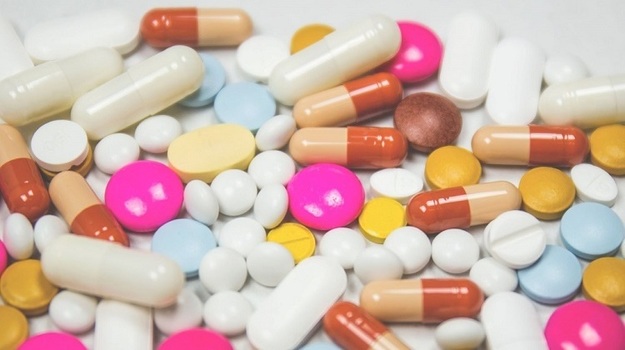Mental health and... medication

What do more than 1 in 6 people aged 18 to 64 - rising to 1 in 5 of over-65s - have in common?
They're among the millions of people prescribed anti-depressants, according to recent figures. More than 4 million are classed as long-term users meaning that, for huge numbers, medication is a vital part of managing their mental health.
The number of anti-depressants prescribed more than doubled from 31 million in 2006 to nearly 65 million in 2016, costing the NHS £266.6million (source: NHS digital, prescriptions dispensed in the community).
Medication is one of many treatment options; what you are prescribed will all depend on your symptoms, diagnosis and how severely the condition is affecting you. While for milder cases of anxiety or depression it may not be the first choice of treatment, for people more severely affected it can be an absolute lifeline. And for those diagnosed with conditions such as schizophrenia and Bipolar disorder, medication is likely to be the main foundation of a treatment plan.
There's a huge array of drugs currently used to treat mental health conditions, most of which fall into 4 categories:
- anti-depressants mainly used in the treatment of depression but sometimes for anxiety, obsessive compulsive disorder and eating problems
- anti-psychotics used to reduce symptoms of psychosis, schizophrenia, schizoaffective disorder and sometimes severe anxiety
- mood stabilisers mainly used in the treatment of bipolar, hypomania, mania and occasionally recurrent severe depression
- sleeping pills and minor tranquillisers these help you sleep but may also be used calm down someone affected by severe anxiety
As with any medical condition, the effectiveness of medication can vary from person to person as can any side effects. This means it can take time and monitoring to find the medication type and dosage that works best for you.
We asked some of the LionHeart mental health ambassadors what difference medication had made to them.
Alan Burke
 "I never saw myself as someone who would need to resort to medication to treat my condition and was highly sceptical that any pills could influence the way I thought and felt. This view was initially upheld when I tried various anti-depressants without any immediately noticeable effects.
"I never saw myself as someone who would need to resort to medication to treat my condition and was highly sceptical that any pills could influence the way I thought and felt. This view was initially upheld when I tried various anti-depressants without any immediately noticeable effects.
I've been on medication for over 5 years now and expect to continue for many years. I'm aware that for others a short-term treatment is all that is needed but, for me, it's more about the long-term management of my condition and I'm OK with that.
Gemma Foster
 "I've had a few different experiences with anti-depressants. When I was 19 and lost my mum to terminal cancer I was really struggling and my doctor prescribed citalopram; after a few months, I felt that whilst the medication balanced out my mood and stopped me feeling down I didn't really feel anything at all. As an anger-fuelled 19-year-old, I decided it wasn't for me - I wanted to feel. However, fast forward 10 years, my mental health really deteriorated. I was really struggling with depression, crying every day for what seemed like little to no reason. My anxiety skyrocketed and it got to the point where I couldn't leave my bed. I'd been attending weekly counselling sessions for 9 months when my therapist suggested anti-depressants.
"I've had a few different experiences with anti-depressants. When I was 19 and lost my mum to terminal cancer I was really struggling and my doctor prescribed citalopram; after a few months, I felt that whilst the medication balanced out my mood and stopped me feeling down I didn't really feel anything at all. As an anger-fuelled 19-year-old, I decided it wasn't for me - I wanted to feel. However, fast forward 10 years, my mental health really deteriorated. I was really struggling with depression, crying every day for what seemed like little to no reason. My anxiety skyrocketed and it got to the point where I couldn't leave my bed. I'd been attending weekly counselling sessions for 9 months when my therapist suggested anti-depressants.
At first I was reluctant but knew I couldn't carry on as I was. My doctor suggested a low dose to minimise the chance of any negative side effects. We progressively increased my dosage until I found what worked for me; this time I felt in control! The medication honestly saved me and helped me pull myself out of the dark pit of despair and depression I'd been in.
For me, using medication has been very important. It gave me the ability to return to work with the confidence that I wouldn't burst into tears during a site visit and would be able to remain in control of my emotions. It helped me slowly but surely feel like me again.
Personally, so far, I've used medication short term but know many who take it long-term to manage their conditions: there's no right and wrong, we're all complex individuals and it's about finding what works for you.
For anyone nervous about taking medication, I'd say try and have an open mind and speak to your GP about any worries you may have. The support of close friends or family can be helpful, especially in the beginning when all the changes are taking place inside. I'd also recommend talking to your GP about complementary talking therapies that may help alongside medication. Most importantly, go back to your GP to discuss alternatives if you feel a particular medication isn't working for you."

